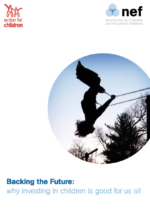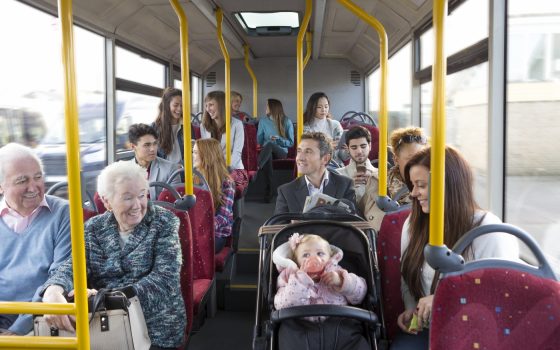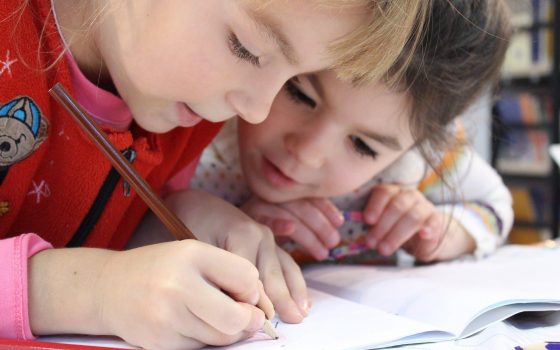Backing the Future
Why investing in children is good for us all
15 September 2009
The UK could save billions and avoid many social problems by shifting towards a preventative model of investment in children and young people.
Backing the Future provides the economic and social case for transforming the way we invest in the future of society through our children. The report makes clear the need for a comprehensive investment programme in preventative services for children and young people that would both save spending on dealing with the impact of problems later, and deliver wider benefits to society.
To achieve lasting change, Backing the Future demonstrates why it is essential to address the impact of the structural factors affecting the circumstances of children’s lives, such as poverty and inequality, together with psychological and social dimensions of their well-being. We show how this can be achieved and present an economic model for how the UK Government could fund a transition to a more preventative system, therefore turning aspiration into reality.
Given the current economic climate, you might ask is it wise for more public spending on children, particularly now? Government debt incurred from bailing out the banks coupled with deepening recession is likely to lead to a sharp squeeze on public services.
Yet Backing the Future shows that the scale of our problems and what it will cost the UK in public spending to remedy them mean we can ill afford not to invest. The recommendations put forward will in fact help plant the seeds of future prosperity and insulate children today from the worst effects of the current recession.
Evidence of the need for decisive action by national governments is compelling. When compared with our European neighbours, the UK comes bottom of the pile on almost every preventable social problem – crime, mental ill health, family breakdown, drug use, or obesity. Our analysis shows that the UK has to spend a third more in addressing the consequences of its social problems than the next most troubled nation. But the costs are not only economic.
The prevalence of these social problems has a direct impact on how children experience their lives and on the cohesiveness of our communities. This means that the UK has some of the lowest levels of child well-being when compared with countries of similar economic wealth, and across social and psychological dimensions. Our 16 – 24-year-olds, for example, record the lowest levels of trust and belonging in Europe.Yet is it so hard to imagine a different future?
A future where all children feel loved, are free from poverty, have supportive relationships with other children and adults, feel happy and safe, and are free to imagine and explore as they journey through their local neighbourhoods. A future where all children feel valued; where they give their ideas, time, passions, and their creativity to everyone they meet and to all that they do. A future where the UK no longer languishes at the bottom of international rankings of child well-being and indices of social dysfunction.
Action for Children, one of the largest providers of services to children, and nef, one of the UK’s leading independent think-and-do tanks, believe this future is both imaginable and within our grasp. But it requires governments across the UK to make it a priority to:
- Invest in targeted interventions that work for our most vulnerable children to improve outcomes and short-circuit the intergenerational cycle of deprivation.
- Invest in high-quality universal childcare services and paid parental leave to build the foundations for a more equitable and well-functioning society over the medium and longer term.
- Re-shape the way targeted and universal services work so that they build on the assets and strengths of children, young people and their families as well as addressing their needs.
Our key findings
Our analysis looks first at the economic case for making this transition. We demonstrate that investing more in children is necessary, economically viable and a better use of public money in the long run.
- The cost to the UK economy of continuing to address current levels of social problems will amount to almost £4 trillion over a 20 year period. This includes addressing problems such as crime, mental ill health, family breakdown, drug abuse and obesity.
- Investing in a dual investment package, including targeted interventions and universal childcare and paid parental leave, could help address as much as £1.5 trillion worth of the cost of these social problems. This would leave the UK in a similar position to European nations such as Finland, Sweden and Denmark which have the best social outcomes.
- To make the investment, there is a strong case for raising the funds needed through a series of annual bond issues with 10-year maturities. Even after factoring in the transition costs from the system we have now to a move preventative approach returns to the UK economy would total £486 billion over 20 years. This is roughly five times the current annual budget of the whole of the NHS. These savings are calculated on the basis of an investment of £620 billion to fund the transition and £394 billion to implement the bond scheme. The bond scheme is suggested as it allows the investment to be front-loaded, while delaying payments until the savings have been realised, making it an affordable way to fund the transition in the current economic climate. However it is only one possible option for raising the necessary investment. If other options are followed the potential savings could be between £486 billion and £880 billion, depending on the cost of implementing the chosen scheme.
Drawing on evidence from case studies of a range of children’s services, the second stage of our analysis shows that the benefits of investing in children are not limited to economic returns alone. By ensuring investment is used effectively, we also demonstrate how local services can help promote the psychological and social well-being of children.
Six key service pathways to child well-being. These pathways help create the conditions for improving children’s psychological and social well-being, and influencing positive outcomes over the longer term. They were found to have applicability in universal and targeted service settings:
- Link up and link in – where services build relationships based on stability and trust and link children into their wider community and ‘core economy’.
- Think family – where services help improve the well-being of those in closest contact with children, as well as children themselves, and provide guidance and support when it is needed most.
- Promote the positive – where the promotion of positive emotions and experiences is pursued to help ensure happy childhoods and drive longer term positive outcomes.
- Encourage action – where children and young people are viewed as providers of services and activities, as well as recipients, and are encouraged to use their strengths in a practical way.
- Factor in fun – where services provide opportunities for play, enjoyment and fun to help boost children’s happiness and stimulate their creativity and potential for learning.
- Recognise children’s wider world – where services are aware of the complex interplay between children’s external circumstances, such as poverty, with their overall sense of well-being.
Co-production offers a mechanism to help promote the service pathways to child well-being. We found services fostering reciprocal working between child and professional which move ‘beyond voice’ to incorporate an active and valued role for children in the design and delivery of projects are central to effective services, and also appear to help promote the pathways to child well-being.
The final stage of our analysis shows that by getting the type and timing of investment right, and by addressing the psycho-social dimensions of children’s lives, economic and social benefits are generated for a range of stakeholders. We completed SROI analyses of three of Action for Children’s services taking an early intervention and preventative approach.
Our findings reveal:
- For every £1 invested annually in Action for Children’s targeted services designed to catch problems early and prevent problems from reoccurring, society benefits by between £7.60 and £9.20. This social value can be generated, for example, through improved family relationships.
- For every £1 invested in an Action for Children children’s centre, a forecast social return to society of £4.60 is expected to be generated. Benefits are forecast to accrue to a range of stakeholders including children, parents, community, and the state.
Key recommendations: invest in children to bring benefits to all
To establish an environment in which children can live happy and fulfilled lives, and where we create the conditions for a better and fairer society for families and communities in the long run, the UK must invest differently and change the way services work. Our proposals for reform are grouped into three ‘reform packages’, each a direct response to the evidence on what is needed and designed to tackle the barriers that currently stand in the way. To achieve a successful transition, these packages will need to be implemented alongside each other.
Reform 1: Buy the services that make a difference
Our recommendations under this package are designed to promote investment in high-quality, targeted interventions for our most vulnerable children to short-circuit intergenerational cycles of disadvantage and to intervene early when additional support is required.
They also aim to address key barriers which stand in the way of progress in this area. These include inadequate policy tools – which restrict investment decisions being made beyond their narrow financial return – and poor measurement and evaluation frameworks which make it difficult to identify needs and gaps in services to make our investments count.
We recommend that all levels of government:
- Roll-out targeted interventions that have been evaluated and shown to work to provide a continuum of support to children and young people who need it most.
- Replace conventional cost-benefit analyses with techniques able to show the full public benefit of interventions, like SROI.
- Improve understanding of children and young people’s needs as a basis to effective targeting of resources and commissioning, by introducing a ‘children and young people’s well-being assessment duty’.
- Commission and de-commission children’s services on the basis of value rather than cost, using innovative models and measurement techniques to ensure services deliver improvements in outcomes.
Reform 2: Invest in essential universal provisions
Our recommendations under this package are designed to help set all children on a pathway of positive social, psychological and material well-being from a young age, and to provide a basis for more equal outcomes over the longer term.
To facilitate a successful reform, our recommendations are designed to better recognise child and family policy as a public issue, to address the limitations of current measures of societal progress, and to tackle political barriers so that we are able to look beyond short-term policy-making cycles when it comes to making investment decisions.
We recommend that the UK Government, with support from the devolved administrations:
- Provides universal childcare provision for all children aged 0 – 4 years, so that the same high-quality and affordable childcare is accessible to every parent.
- Extends paid parental leave, including for fathers, to enable parents to spend more time developing intimate relationships with children, which are essential to their happy and healthy development.
- Achieves cross-party commitments to invest in essential universal provisions for children and families in the UK.
- Establishes new measures of societal progress as a mechanism to better value children and young people as ‘public goods’, through the introduction of National Accounts of Child Well-being.
Reform 3: Improve the way services work
Our recommendations under this package are designed to get the ‘how’ of service reform right. Although a range of factors will influence children and young people’s psychological and social well-being, the way in which services are provided at both a universal and targeted level plays a key role.
Our proposals are particularly designed to identify mechanisms to overcome conventional approaches to service delivery that tend to overlook the importance of relationships for children’s well-being and fail to enhance the capacity of children and families to work alongside professionals in seeking solutions to problems.
We recommend that all levels of government:
- Promote the six service pathways to child well-being.
- Fund and evaluate a national pilot on co-production in children’s services.
- Invest in workforce development and establish a ‘Children’s Services in the twenty-first century’ learning network.
- Develop clear, evidence-based messages to better support families and communities to promote change for children.
The findings outlined in Backing the Future provide a compelling economic and social case for transforming the way in which we invest in the future of society through our children. We show that the way governments configure targeted and universal service provision for children has a direct impact on the way children experience their lives and a bearing on their longer term outcomes. We also show that investing now to promote child well-being is in the public interest, not just because it ensures more effective use of public resources but because it delivers improved social outcomes and ultimately, benefits us all.
Campaigns Parent-led childcare
Topics Public services Wellbeing







